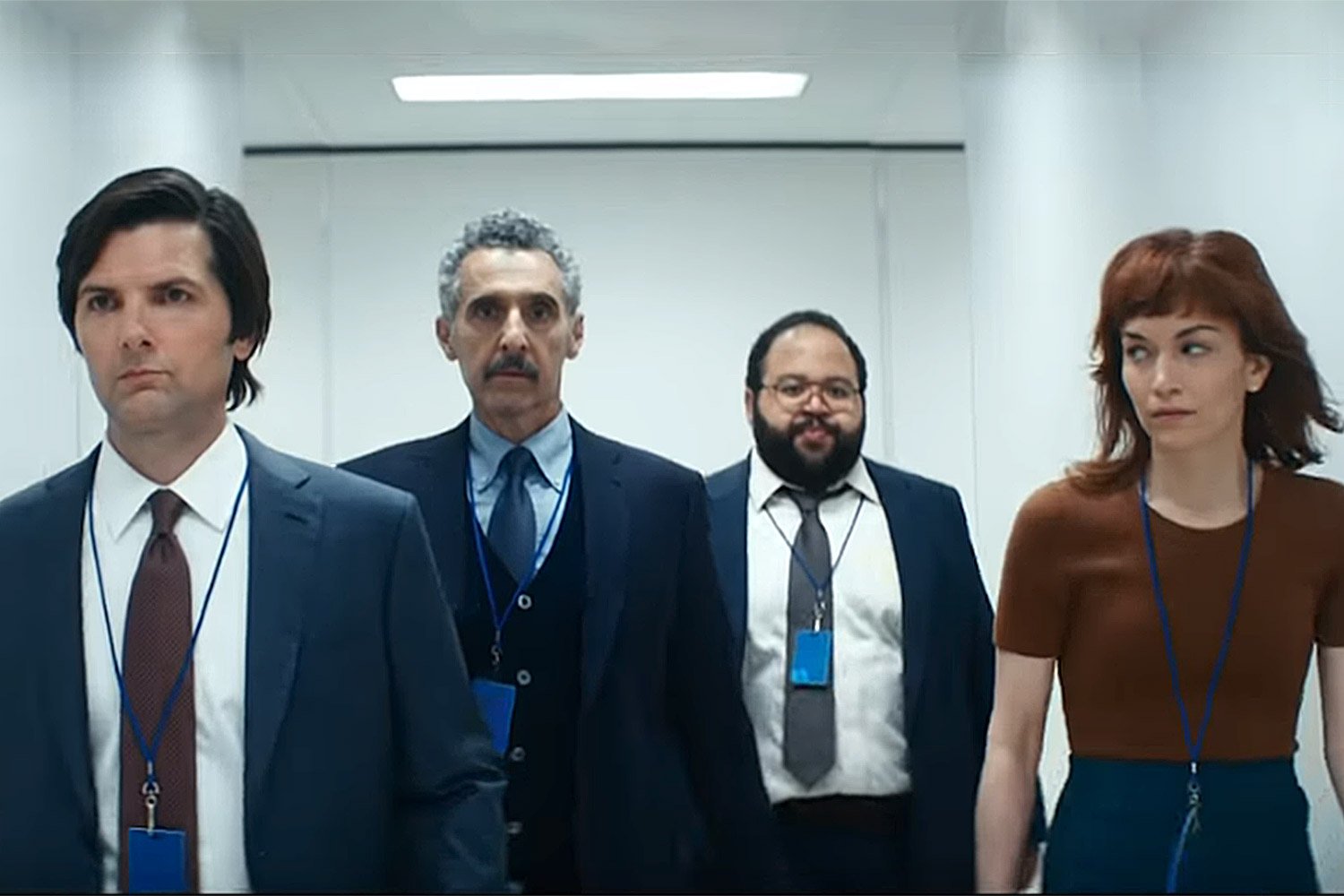Severance, Apple TV
Directed by Ben Stiller and Aoife McArdie, Severance tells a Kafka-esque tale about the workers of a mysterious tech organisation whose memories have been surgically divided between their work and personal lives.
Every now and then a show comes along that is so intricate and layered that it can be enjoyable, perplexing and maddening all at once.
Dan Erickson's Severance is one such show. Not since the first season of Westworld have I watched something that is so brilliantly original, but also occasionally far too clever for its own good. There is so much happening here both from a thematic point of view and in terms of its actual events that it can be a challenge to keep pace.
Directed by Ben Stiller and Aoife McArdie, the show tells a Kafka-esque tale about the workers of a mysterious tech organisation, Lumon, whose memories have been surgically divided (or severed) between their work and personal lives. The workers are blissfully unaware of this until protagonist Mark (Adam Scott) becomes intrigued by an old colleague's doomed attempts to extract himself from his working life.
From there, the plot becomes a daring attempt by Mark and the rest of his colleagues (John Turturro, Zach Cherry and the excellent Britt Lower) to escape their seemingly self-imposed imprisonment. To do so, they need to get past the devilish Harmony Cobel (Patricia Arquette) and Milchick (Trammell Tillman), who take the phrase jobsworth to the extreme.
It is a daring show that has much to say about our endless quest for greater work-life balance, and our apparent willingness to sacrifice so much of our personal lives to the tech companies that increasingly shape the world in which we live. Rarely does a show deal with such entrenched philosophical quandaries and remain engaging throughout, but Erickson just about manages to pull the balancing act off.
Severance is certainly one of the most visually arresting shows that you'll see on TV this year, with Stiller, McArdie and cinematographers Jessica Lee Gagné and Matt Mitchell creating a stunningly claustrophobic aesthetic that perfectly encapsulates the circumstances of its characters.
This is mysterious, challenging television that defiantly goes against the grain of many other modern 'blockbuster' series. And, while it doesn't always satisfy, it always keeps you guessing and that ought to be celebrated.
Peaky Blinders (Season 6), BBC
I think the unwieldiness of this season’s plot was a clear indication that it’s the right time to put the flat caps away.
Like Tommy Shelby, I have a confession to make. Before you ask – I haven’t killed anyone. My sin is far less devilish than that. In fact, depending on your POV, it isn’t necessarily a sin at all.
My admission is that I’ve never really bought into the Peaky Blinders hype. Maybe that’s because, as a genuine Midlander, I’m affronted by the majority of the cast’s attempts at a Brummie accent. Or maybe it’s because, akin to performing monkeys, me and my friend were once accosted by a group of southerners at Glastonbury festival because we ‘sounded like those Peaky Blinders off the telly’.
Either way, it’s never been a show that has really captured my imagination. I’m a fan of Steven Knight and think the cast are generally excellent, but I won’t be mourning the Shelby’s absence from my screens now that their nine-year sojourn has come to an end. That’s mostly because I feel that, like so many preceding crime series, it had fallen into the trap of becoming too clever for its own good.
Take this season for example, in which Tommy Shelby – in addition to running a multi-million crime empire and keeping both his family and himself in check – has been playing undercover agent for Churchill, a group of fascist MPs, the Boston mafia, and the IRA. I appreciate that this is a work of fiction but that’s beyond the capabilities of any man, let alone one from Birmingham (pardon the cheap gag).
Of course, the result of all this perceived cleverness is that the show has ironically become more and more silly. This was never more apparent than in its admittedly enjoyable finale, in which Tommy managed to thwart the machinations of his enemies because, well, reasons. Another issue is that, while it’s always good to see a wrong’un get their comeuppance, there are so many of them in Peaky Blinders that after a while it’s hard to care. Bring back Sam Neil I say.
That aside, it’s hard to deny the runaway success and broad appeal of Knight’s creation. On a superficial level alone, it is jam packed with great tunes (I’ll definitely miss hearing Red Right Hand every week), great outfits and a cool as f**k Cillian Murphy, and is (probably) deserving of the big screen send-off that has been promised. But I think the unwieldiness of this season’s plot was a clear indication that it’s the right time to put the flat caps away.

